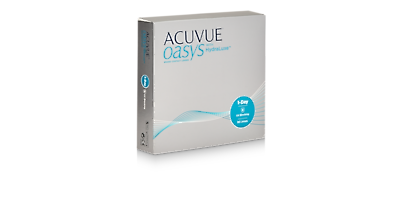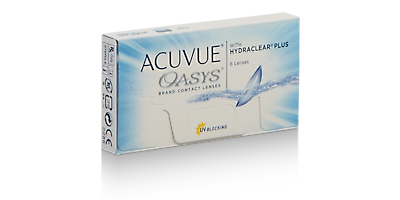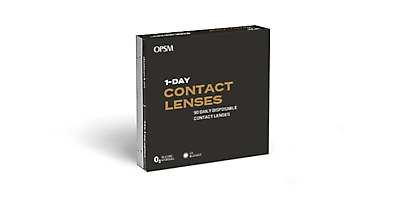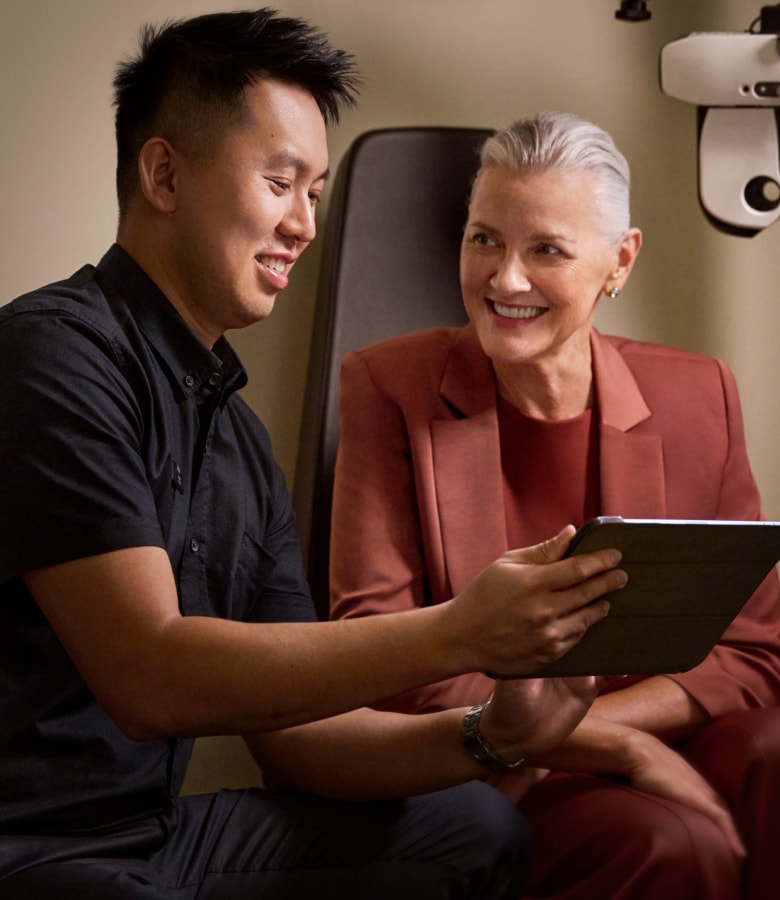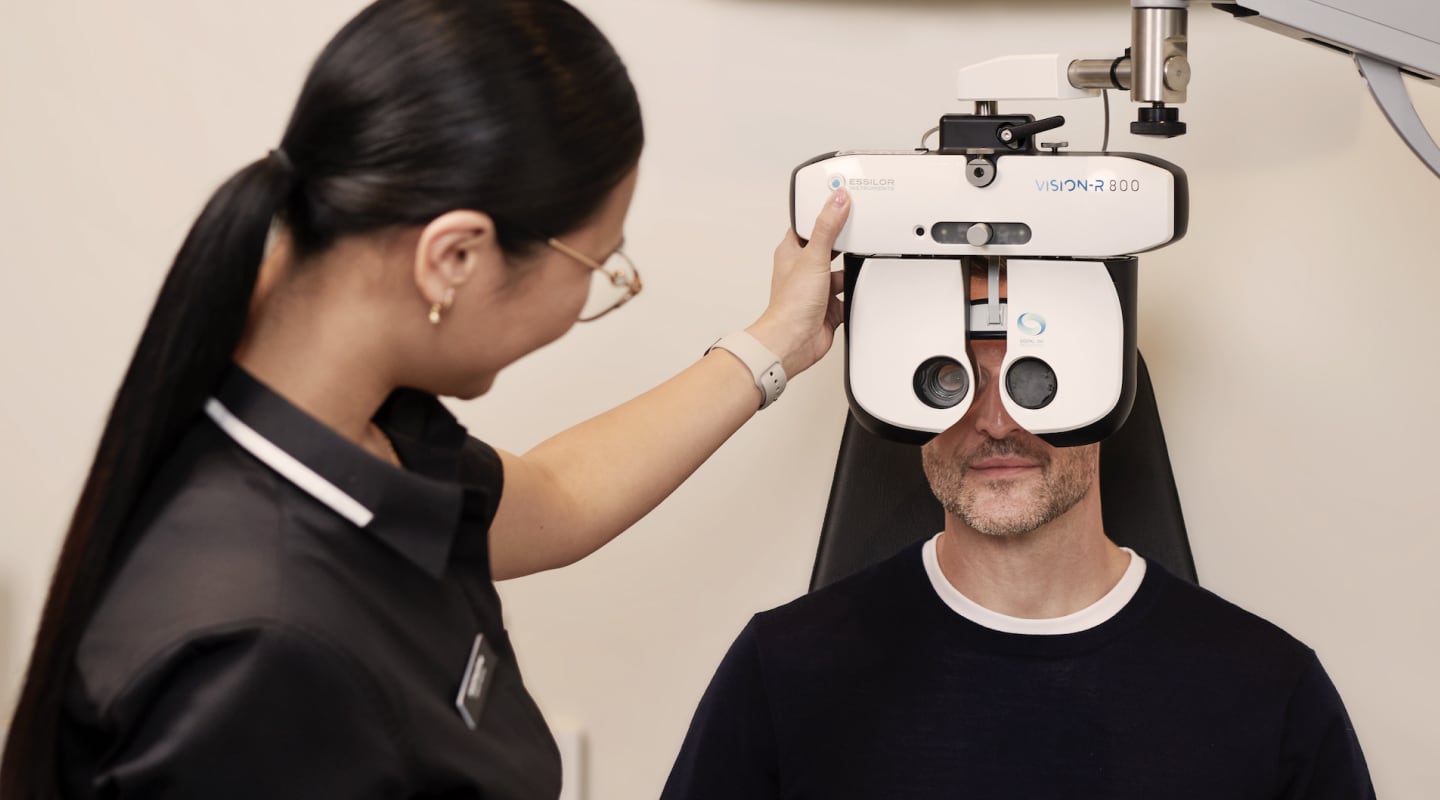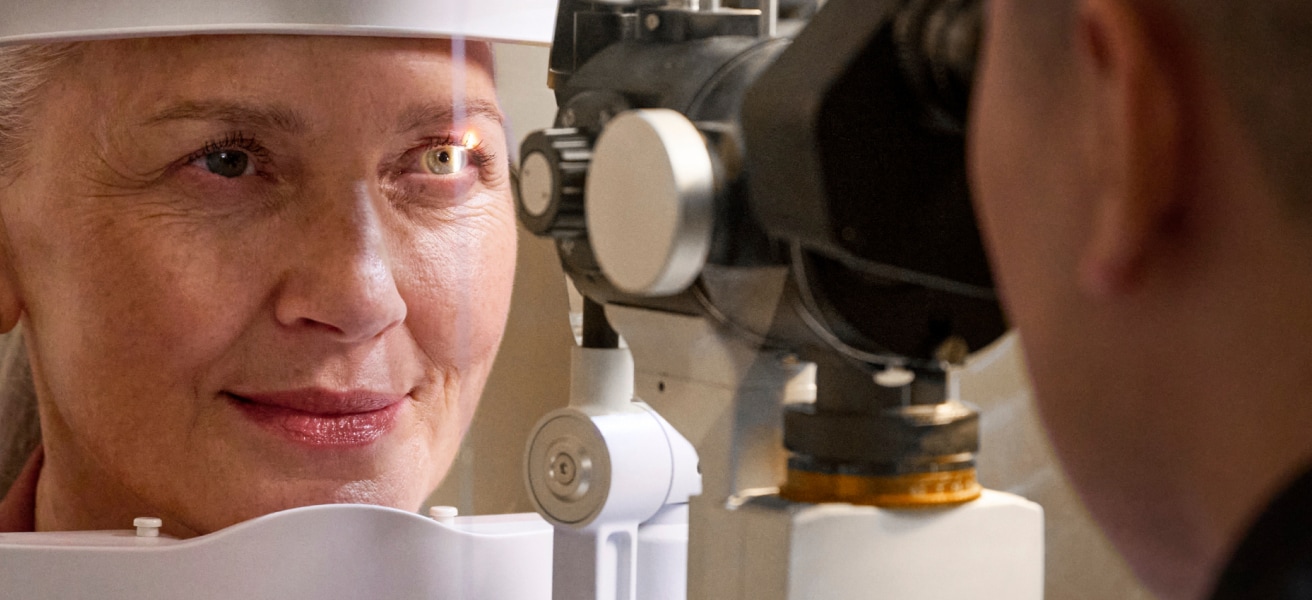Could your vision be improved?
Our Optometrists can help you better understand your vision, and how to maximise your visual potential. This is done by determining your prescription and prescribing you an individually tailored visual solution for clearer eyesight, be it glasses, contact lenses or other visual aids. The process of determining your prescription is called refraction.
What happens during refraction?
Also known as a vision exam, refraction involves a series of lens choices through which you view a reading chart, comparing what you see. By adjusting the focus of the chart image on your retina, your prescription can be determined to provide you with optimum visual acuity. To determine more complex prescriptions, eye drops may be used. These drops temporarily prevent the eyes from changing focus while refraction is performed.
There is an art to refraction - your Optometrist will always discuss your answers and their findings with you, based on the results they can determine your amount of short-sightness, long-sightness or astigmatism, if any.
What we look for
After your refraction exam, your Optometrist will have determined your prescription for distance, intermediate (computer) and/or near and will prescribe glasses, contact lenses or other visual aids based on your specific needs. Refraction can also detect deterioration in your vision and tells your Optometrist about the health of your eyes - an important aspect of your examination. Your Optometrist may also perform tests to check your focusing and how well your eyes work together, which is important for performance of day-to-day tasks.
When to check your prescription
A person’s future prescription is not always predictable, so your Optometrist can only advise on the likely progression of your prescription and how regularly you should undergo refraction. You can easily make an appointment to have your prescription checked if you feel your vision is changing, if you would like to look at a different form of correction, or if it has been some time since your last examination.
We recommend that you have an eye test at least every two years, or more frequently if recommended by your Optometrist.









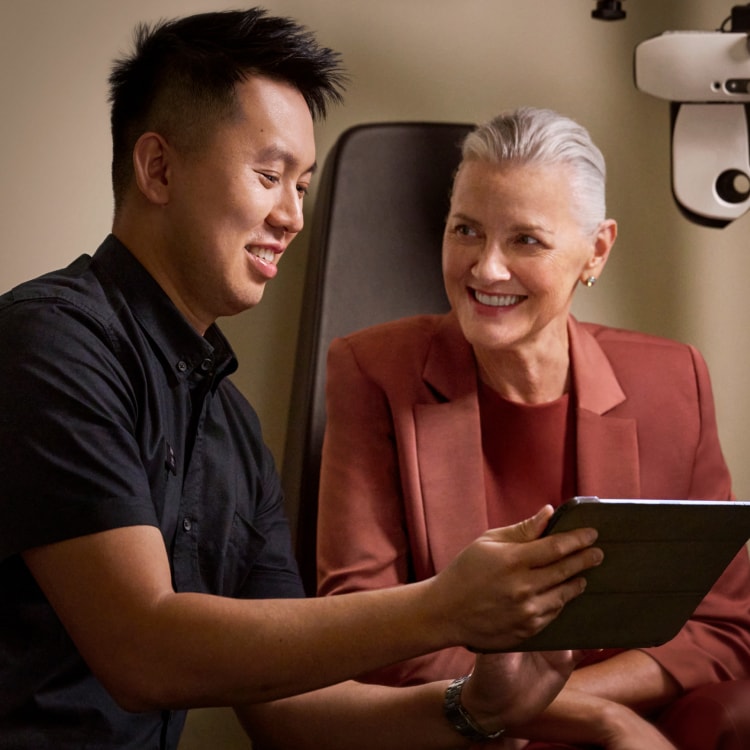
 Book an eye test
Book an eye test
 Health Funds
Health Funds
 Find A Store
Find A Store
 Favourites
Favourites






